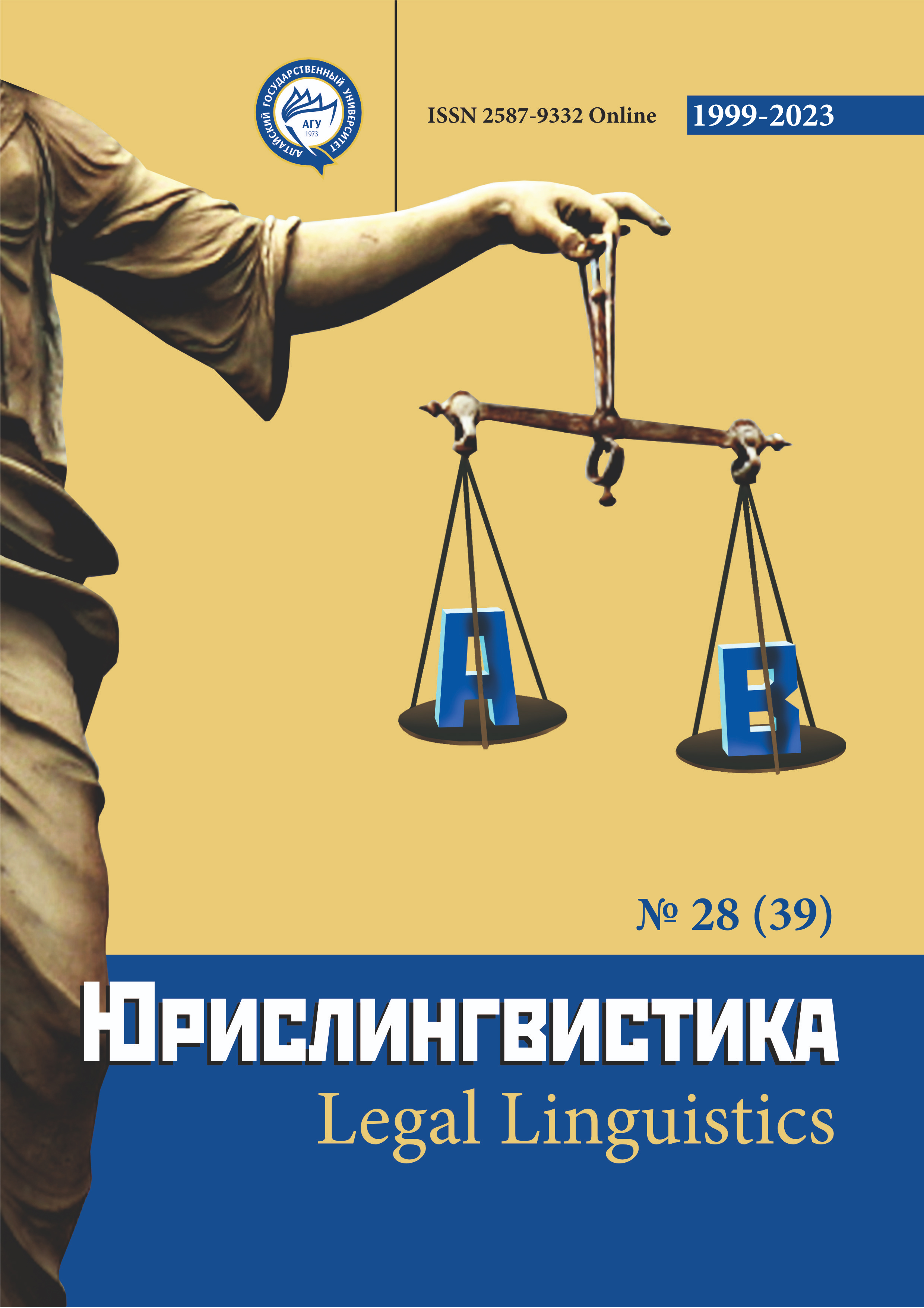Ancient Chinese Concepts of Understanding Law
УДК 34.01, ББК 67.1
Abstract
The article studies political and legal thought in Ancient China. Ancient Chinese thinkers in their works reflected their approaches to understanding law. Shang Yang in "Shang jun shu" ("The Book of the Ruler of the Shang Region") considers the law as the only regulator of social relations. Legalists equate the concept of law and law, law is considered as a set of rules of conduct emanating from the state and protected by it, which corresponds to the normative concept of legal understanding.
Another version of legal understanding was developed by representatives of Taoism. Lao Tzu in his work “Tao Te Ching” (“The Book of the Way and Grace”) paid special attention to the exposition of his teaching about Tao as the highest law of the development of the universe, nature, society and man. Tao acts as a natural law of immediate, direct action. Taoists are supporters of the natural law concept. In Confucius' work "Lun Yu" ("Conversations and Judgments"), the main regulator of social relations is not the Tao or the law, but the norms of ritual li. The right is not reduced to the law, but is considered as a set of legal relations, and the legal order that develops on the basis of them. Legal understanding of Confucius can be attributed to the sociological concept.
In the work of Xun Tzu, there are attempts to bring together the Confucian rules of the ritual "li" and the Legalist law "fa". A new, orthodox Confucianism is emerging, which no longer completely denies the law, but advocates management both on the basis of li and on the basis of fa, with the dominant role of li. In China, a new type of legal understanding is emerging - integrative or synthetic.
The article concludes that within the framework of the political and legal thought of Ancient China, there were various approaches to understanding law. After the proclamation in II BC. updated Confucianism with the official ideology of China, the integrative type of legal understanding becomes dominant, both in theory and in law enforcement practice.
Downloads
Metrics
References
Древнекитайская философия. Т.1. М., 1972.
Древнекитайская философия. Т.2. М., 1973.
Духовная культура Китая. М., 2006.
Кальной И.И. Философия права. М., 2006.
Книга правителя области Шан. М.,1993.
Ковлер А.И. Антропология права. М., 2020.
Конисси Д. Дао: гармония мира. М., Харьков, 1999.
Конфуцианское «Четверокнижие». М., 2004.
Королева О. А. Процесс формирования и развития иероглифа фа («право») в китайской культуре / Вестник Института востоковедения РАН. - 2021. - № 4. – C.97-107.
Кычанов Е.М. Этика и ритуал в традиционном Китае. М., 1988.
Нерсесянц В.С. Право и закон. М., 1983.
Политические учения: История и современность. Домарксистская политическая мысль. М., 1976.
Рубин В. А. Идеология и культура Древнего Китая. М.,1972.
Рыбаков В.М. Уголовные установления Тан с разъяснениями. СПб., 1999.
Скакун О.Ф. Общее сравнительное правоведение. Киев, 2008.
Черноков А.Э. Введение в сравнительное правоведение. СПб., 2007.
Федорова Л.Ф. Философия Древнего Востока. М., 2015.
Copyright (c) 2023 Оксана Моисеева

This work is licensed under a Creative Commons Attribution 4.0 International License.
The authors, which are published in this journal, agree to the following conditions:
1. Authors retain the copyright to the work and transfer to the journal the right of the first publication along with the work, at the same time licensing it under the terms of the Creative Commons Attribution License, which allows others to distribute this work with the obligatory indication of the authorship of this work and a link to the original publication in this journal .
2. The authors retain the right to enter into separate, additional contractual agreements for the non-exclusive distribution of the version of the work published by this journal (for example, to place it in the university depository or to publish it in a book), with reference to the original publication in this journal.
3. Authors are allowed to post their work on the Internet (for example, in a university repository or on their personal website) before and during the review process of this journal, as this may lead to a productive discussion, as well as more links to this published work (See The Effect of Open Access).











